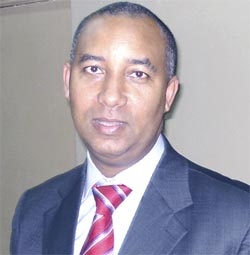
The Ghana National Petroleum Corporation (GNPC) says the assertion by an energy policy think tank Africa Centre for Energy Policy (ACEP) that the agreement between Ghana and AGM Petroleum Ghana Limited “stinks badly” has no basis in law or fact.
According to the GNPC, “AGM is a serious, well-established Ghanaian entity set up to focus on petroleum operations in Ghana as required by law. Its leading member, AGR, is a world-class operator capable of transferring the requisite operatorship skills to GNPC in the shortest possible time.”
Last Friday, ACEP through its Executive Director, Mohammed Amin Adam, issued a statement titled ‘Parliament Must Scrutinize Petroleum Agreement between Ghana and AGM Petroleum Ghana Limited by Cabinet before Ratifying it – ACEP’ and said cabinet had already approved the deal.
According to ACEP, GNPC had outdoored its exploration and production subsidiary, EXPLORCO in an agreement over the South Deepwater Tano Block negotiated between the GNPC, its subsidiary and the AGM Petroleum Ghana Limited and under the agreement, AGM Petroleum Ghana and EXPLORCO were expected to form a joint operating company where AGM Petroleum will hold 21 per cent interest.
However, rebutting the allegations by the energy think tank, GNPC, through its Acting Head of Corporate Affairs, Eric Pwadura said “the terms of the agreement are difficult to match, as was seen in the outcome of the competitive bid.
“We want Ghanaians to be rest assured that GNPC, in partnership with the Government of Ghana, will always seek to ensure that Ghana attains the maximum benefit from its hydrocarbon resources. We therefore welcome Parliamentary scrutiny of the SDWT agreement as has been done for all petroleum agreements preceding it.”
The GNPC said ACEP’s first substantive allegation that AGM had neither the technical nor financial capacity to manage a deep-water block like the South Deep Water Tano block, could not be true.
“This allegation is false. As required by Ghana’s Petroleum Exploration and Production Law (PNDC Law 84), only companies registered or incorporated in Ghana can be parties to a petroleum agreement in Ghana – hence the creation of AGM Petroleum Ghana Ltd by its sole shareholder, AGM Gibraltar.”
Furthermore, GNPC said AGR Energy and Minexco OGG demonstrated to the satisfaction of GNPC and the Ministry of Energy and Petroleum that AGM will have no difficulty funding the agreed work programme, and that in the event of a successful exploration campaign, the companies would comfortably be able to raise the resources required to undertake field development and production.
“Their financial capability is supported by the requirement to put in place a Performance Bond to cover their obligations. Med Songhai is a Ghana incorporated and Ghanaian-owned company. It is fully owned by Joseph Agyepong, a prominent industrialist, who has demonstrated a willingness and ability to finance the company’s obligations under this venture.”
The GNPC said ACEP’s allegations especially those bordering on fraud are baseless, saying, “They do not demonstrate painstaking research on and assessment of international oil and gas and indeed foreign investment practice. Rather, they complicate what should be a straightforward and typical commercial transaction.”
It also said the AGR Group is publicly listed on the Oslo Stock Exchange in Norway, stressing, “The Group’s interest in AGM Gibraltar is a matter of public record in Norway.” “It is simply not true that Mr. Gilad Mintzer is described in the company incorporation documents or otherwise represented to Government as a Ghanaian.
Again, there would be no purpose in such a misrepresentation. Ghana’s Companies Act does not require that locally incorporated companies have Ghanaian directors.
It merely requires that one of the minimum two directors be present in the country at all times. Nor does Ghana’s law require that a director or other officer of a company have an interest in that company. There is in fact no “Ghanaian Company” principle to be abused.”